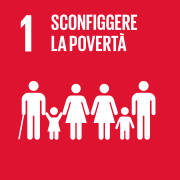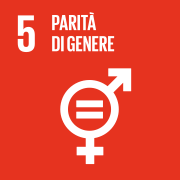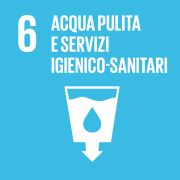
Today, all over the world, we celebrateEarth Day. But we at the Foundation for Digital Sustainability are also celebrating a year of work. Certainly a strange year, the one that has passed: suspended between a pandemic that many thought they had already left behind and a conflict that just as many did not imagine could break out so close to home. But it was also a year that highlighted – if ever there was a need – the need to look at sustainability as the key to understanding development models for our future.
A year ago we announced the birth of the Foundation for Digital Sustainability, highlighting how this was a turning point for us. Today, after a year that in some ways passed in an instant, for others seems to have lasted an epoch, here we are again, telling what this turning point meant.
At the time of writing, we are just a few hours away from the start of a half-day seminar dedicated to the Foundation’s members and partners: a seminar that we have chosen to hold in the presence of and thought of opening up to the main stakeholders to tell them what this year has meant for us and – above all – what we plan to do in the year ahead.
We chose to do it in person because – to tell it seems impossible, given the road we have travelled together – it is the first time that all our supporting members, companies, universities and institutions that are part of our network will meet ‘live’. And we needed it.
We have chosen to let all the members of the Foundation who, during 2021 and in this first part of 2022, have worked on our projects speak: what emerges is a programme of work that cannot but make us proud of what has been done, made possible only thanks to a collective enthusiasm and a shared passion for an idea that, slowly (but not even that slowly, in fact), we are seeing realised.
It is no coincidence that Minister Giovannini, who signed the preface to my book,‘Digital Sustainability‘, two years ago, and Undersecretary Ascani, who last year was the first institutional signatory of our Manifesto for Digital Sustainability, will open the conference. It is no coincidence that the seminar will be held at Sapienza University, which has been my home for so many years, and that Alberto Marinelli, a fraternal friend, who has always been on the Foundation’s scientific committee and now ‘host’ in Via Salaria, will introduce the proceedings. And it is no coincidence that one of the main keynotes will be held by Stefano Denicolai, a precious companion during this long year: but I cannot tell you why yet.
In short: there is little in the programme of the day that is about to open. But the most important thing, I said, is that all those who will speak during the morning will do so about what we have done together. The meeting will be opened and closed by two people without whom the Foundation would hardly be what it is today: Luciano Guglielmi, Director of the Steering Committee, and Simone Pastorelli, Director of Communications. The former will tell us how we have transformed over the year, the latter where we want to go. Opening the keynotes will be Mauro Minenna, now Director of the Digital Transformation Department and a long-standing friend and supporter of our activities: one of those, of those few, for whom sustainability is not the marketing department’s last-minute discovery.
The first round table is dedicated to one of our most important projects: the construction of an index tracking the ability of organisations to measure the effectiveness of using technology as a sustainability tool. A complex and important path, which started with the development of the Manifesto on Sustainable Coding, the result of Carlo Bozzoli‘s vision, which gave rise to a group of companies led by ENEL – and composed of Cisco Italia (with Enrico Mercadante, one of the first to have bet on our idea), DNV (with Renato Grottola) and BluDigit-Italgas (with Marco Barra Caracciolo) – which aims, thanks to the collaboration with the network of the Foundation’s universities (in this case led by the volcanic Tiziana Catarci, director of DIAG Sapienza) and the National Council of Engineers – to develop what we hope will become a reference proposal for the sector.
The second round table will be an opportunity to focus on the themes of training and communication as tools for developing a shared awareness of digital sustainability. We will do this starting from the student engagement project wanted by EHT, which President Emanuele Spampinato will tell us about: a prize for the best STEAM theses dedicated to digital sustainability that will start in the coming months with a roadshow in the Italian universities that are part of our network. We will thus have the opportunity to engage with students from all over Italy and promote the theme of digital sustainability as a tool for the governance of innovation.
We will continue on the theme of training with Francesco Castanò, recounting the experience of Rompiamo le Scatole, our and ACI Informatica’s project to support high school students, and recounting the experience – carried out with the less young – of our advanced training course on digital sustainability, developed for Adiconsum. But we will also talk about communication with Roberto Ferrari, with whom we have been collaborating for many years to promote awareness on decarbonisation issues, and with Natalia Garcia De Castro, our partner for Latin America.
In short: today’s morning will be an important opportunity for us to take stock and chart the course for the coming year.
One thing I have not said: what I will do. I will present the Foundation’sObservatory dedicated to studying how Italians experience the relationship between technology and sustainability and I will present the DiSI: What is the DiSI? We will tell you this in the next few days: for now, if you want to know more, Il Sole 24 Ore, Forum PA, CorCom, ANSA have spoken about it.
I can only conclude by thanking everyone – starting with those who have worked ‘behind the scenes’ in these months: Vilma Bosticco and Laura Castellazzi, in charge of our press office; Lorenzo Papale, who tries to put my chaos in order; Livio Gigliuto and Simona Mirelli, irreplaceable partners with whom – with the Piepoli Institute – we have built our index; Francesco Mercadante, Andrea Lanuzza, Luigi Mundula and Andrea Bertaglio, for their continuous presence. And – of course – all the members of the Scientific Committee, whom we hope to involve even more and more in the coming months. Without you, none of this would have been possible.
















